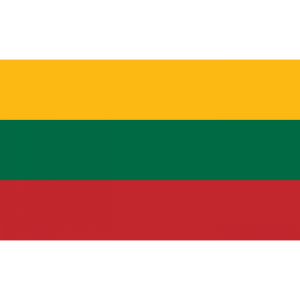Language/Lithuanian/Grammar/Nouns
Hi Lithuanian learners! 😊
In today's lesson, we will be discussing the basics of Lithuanian nouns. We will cover topics such as gender, number, and case. By the end of this lesson, you will have a better understanding of how to use Lithuanian nouns in your everyday conversations.
Gender
Nouns in Lithuanian are divided into two genders: masculine and feminine. The gender of a noun is usually determined by its ending. For example, the word for “book” (“knyga”) is feminine, while the word for “table” (“stalas”) is masculine.
Masculine Nouns
Masculine nouns typically end in -as, -is, -ys, or -us. For example, the word for “table” (“stalas”) ends in -as, while the word for “chair” (“kėdė”) ends in -ė.
Feminine Nouns
Feminine nouns typically end in -a, -ė, -ėlė, or -utė. For example, the word for “book” (“knyga”) ends in -a, while the word for “pencil” (“pieštukas”) ends in -as.
Number
Nouns in Lithuanian can be singular or plural. The plural form of a noun is usually formed by adding -ai or -iai to the end of the word. For example, the word for “book” (“knyga”) becomes “knygos” in the plural form.
Case
Nouns in Lithuanian can take different forms depending on their function in a sentence. This is known as “case”. There are seven cases in Lithuanian: nominative, genitive, dative, accusative, instrumental, locative, and vocative.
Nominative Case
The nominative case is used for the subject of a sentence. For example, the word for “book” (“knyga”) would be in the nominative case if it was the subject of the sentence.
Genitive Case
The genitive case is used to indicate possession. For example, the word for “book” (“knyga”) would be in the genitive case if it was indicating that someone owned the book.
Dative Case
The dative case is used to indicate the indirect object of a sentence. For example, the word for “book” (“knyga”) would be in the dative case if it was being given to someone.
Accusative Case
The accusative case is used to indicate the direct object of a sentence. For example, the word for “book” (“knyga”) would be in the accusative case if it was being read.
Instrumental Case
The instrumental case is used to indicate the means by which something is done. For example, the word for “book” (“knyga”) would be in the instrumental case if it was being used to write something.
Locative Case
The locative case is used to indicate the location of something. For example, the word for “book” (“knyga”) would be in the locative case if it was located somewhere.
Vocative Case
The vocative case is used to address someone directly. For example, the word for “book” (“knyga”) would be in the vocative case if it was being addressed to someone.
If you have any questions, please ask them in the comments section below.
Feel free to edit this wiki page if you think it can be improved. 😎
Videos
Lithuanian Lesson 9 - Cases of Nouns - YouTube
LITHUANIAN LESSON 78 - PERSONAL PRONOUNS FOR ALL ...

